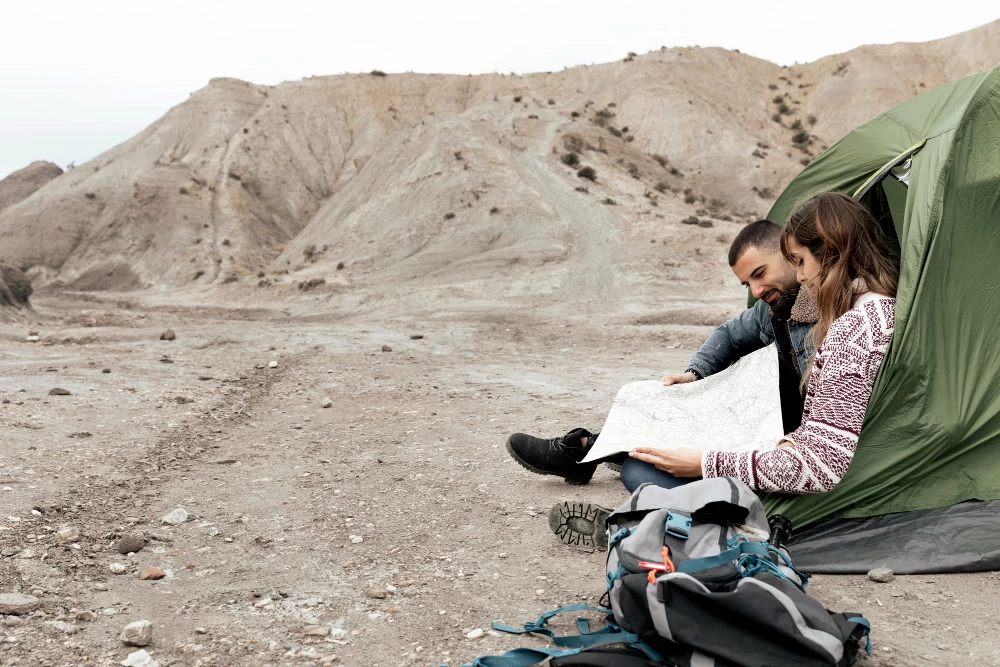
Trekking in the Ladakh region of the Indian Himalayas offers a surreal experience unlike any other. Known for its stark beauty, high-altitude deserts, ancient Buddhist monasteries, and dramatic mountain landscapes, Ladakh is a dream destination for trekkers across the world. While many routes here are physically demanding, there are several trails suitable for beginners who are well prepared and eager to explore this high-altitude wonderland.
If you’re planning your first trek in Ladakh, this guide will walk you through everything you need to know to have a safe, enjoyable, and unforgettable journey.
Holiday Packages in Ladakh
View All
Ladakh, located in the northernmost part of India, offers a unique blend of natural beauty and cultural richness. Unlike the lush green trails of Himachal or Uttarakhand, Ladakh presents barren, moonlike landscapes, clear blue skies, and snowcapped peaks that create an otherworldly trekking experience.
For beginners, the region also offers relatively short and less strenuous treks such as:
Sham Valley Trek (The Baby Trek): Perfect for first-time trekkers, it passes through picturesque villages like Hemis Shukpachan and Tingmosgang.
Phyang to Hunder Trek: A moderate trail connecting Leh to Nubra Valley, offering diverse landscapes.
Saboo to Khalsar Trek: A short yet rewarding route for those who want to experience Ladakh’s scenic and cultural elements.
These trails are generally lower in altitude (3000 to 4000 meters) compared to advanced treks like Markha Valley or Stok Kangri..
The ideal time for trekking in Ladakh is from late May to early September. During this period, most trails are accessible, the weather is stable, and passes are clear of snow.
June to August is considered the peak trekking season. Ladakh lies in a rain shadow region, making it one of the few Indian trekking destinations open during the monsoon.
Avoid winter and early spring (October to April) unless you’re an experienced trekker equipped for extreme cold and snow.
Trekking and Hiking Packages in Ladakh
View All
Ladakh’s high altitude means the air is thinner, and altitude sickness is a real concern, even on easy treks. Leh, the main entry point, is located at about 3500 meters. Beginners should spend at least 2 full days in Leh before starting their trek to acclimatize properly.
During acclimatization:
Stay hydrated (drink plenty of water)
Avoid alcohol and smoking
Take light walks around Leh to get your body used to the altitude
Even if the trek is short, the altitude makes physical effort more challenging. Begin preparing at least 4 weeks in advance by:
Walking or jogging regularly
Strengthening your core and legs
Practicing stair climbing or light hiking
Incorporating breathing exercises like pranayama or swimming
This conditioning will help you manage the reduced oxygen levels and enjoy the journey more comfortably.
Packing right is crucial, especially in Ladakh’s unpredictable weather. Essentials include:
Sturdy trekking shoes with good grip
Thermal base layers, fleece jackets, and windproof outer layers
Sunscreen, sunglasses, and lip balm (sunlight is intense at high altitudes)
Woollen cap, gloves, and socks
Reusable water bottle or hydration pack
First-aid kit with basic medication and Diamox (consult a doctor first)
Power bank and flashlight
Trekking pole for better support
Avoid overpacking; aim for a light backpack with just the essentials.
Ladakh is home to a rich Buddhist culture. Many treks pass through traditional villages and near monasteries. Respect local customs:
Dress modestly
Don’t photograph people without permission
Avoid loud behavior or littering
Greet locals with a friendly “Julley” (Hello)
Supporting local homestays and guides not only enriches your experience but also contributes to the local economy.
Trekking in Ladakh is more than just a physical challenge. It is a journey of the soul through one of Earth’s most breathtaking landscapes. With thoughtful preparation, acclimatization, and respect for local traditions, beginners can truly immerse themselves in the majestic beauty of the Indian Himalayas. You’ll return with more than memories — you’ll gain a deep appreciation for nature, resilience, and cultural harmony.